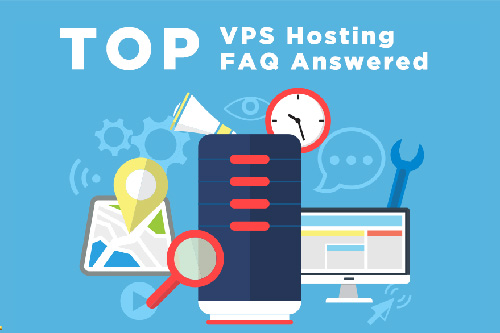Best Hosting for High-Traffic Websites and Blogs
For any growing blog, e-commerce store, or online business, this isn't just a hypothetical. It's a critical infrastructure failure that costs you traffic, credibility, and potential revenue. While cheap shared hosting is a great starting point for any new venture, it has a very low ceiling. When your success finally creates that massive traffic spike you've been working for, you need a hosting solution built for scalability and performance. This guide will break down the best hosting for high-traffic websites, focusing on the powerful duo that keeps the internet's busiest sites online: VPS and Cloud Hosting.
Think of shared hosting as renting a room in a crowded apartment. You share everything: the kitchen (CPU), the water pressure (RAM), and the internet connection (bandwidth). It's incredibly affordable and works fine when there aren't many people home. But when your roommate throws a huge party (your content goes viral), the entire apartment grinds to a halt. The lights flicker, the water stops running, and no one can get in or out the front door.
This is what happens on a shared server. Your website is one of hundreds, sometimes thousands, on the same machine. When one site experiences a surge in traffic, it consumes a disproportionate amount of the server's limited resources, slowing down every other site—including yours. To prevent this, hosts implement strict resource limits. Once you hit your limit, your site will slow to a crawl or, more likely, go offline completely. This isn't a sign of a bad host; it's simply the nature of the shared hosting model. It's built for starting, not for scaling.
The Upgrade Path: VPS vs. Cloud Hosting
When you've outgrown the shared hosting apartment, it's time to move into a property that can handle your growth. The two primary upgrade paths are Virtual Private Servers (VPS) and Cloud Hosting. Both offer a massive leap in performance and reliability, but they cater to slightly different needs.
VPS Hosting: Your Private Slice of the Server
A Virtual Private Server (VPS) is like owning a condo in a high-rise building. You still share the building (the physical server), but you have your own dedicated and partitioned space with guaranteed resources. Your neighbor's party won't affect your electricity or water supply. You get a specific allotment of CPU cores, RAM, and storage that is yours and yours alone.

- Pros:
- Guaranteed Resources: No more 'noisy neighbor' effect. The performance you pay for is the performance you get.
- Increased Control: Most VPS plans offer root access, allowing you to install custom software and configure the server environment to perfectly match your application's needs.
- Enhanced Security: Your partitioned environment is inherently more secure than a shared server where one compromised site can pose a risk to others.
- Cost-Effective Scalability: It's a significant step up from shared hosting without the potentially variable costs of cloud hosting. It's one of the best hosting for small business options that anticipate steady growth.
- Cons:
- Finite Scaling: You can easily upgrade your VPS plan (vertical scaling), but you are still ultimately limited by the capacity of the single physical server your VPS resides on.
- Management Responsibility: Unless you opt for a 'Managed VPS' plan, you are responsible for server maintenance, security patches, and software updates.
Best for: Websites with predictable, steady traffic growth, businesses that need more control than shared hosting allows, and owners who want a balance of power and predictable monthly costs.
Cloud Hosting: The Ultimate in Scalability and Flexibility
If a VPS is a condo, Cloud Hosting is like plugging into the entire city's power grid. Instead of relying on one single server, your website's data is distributed across a vast, interconnected network of servers. If one server fails or becomes overloaded, traffic is seamlessly rerouted to another, ensuring your site stays online.

This architecture is built for one thing above all else: elasticity. When a traffic spike hits, the cloud network automatically allocates more resources to handle the load. When the traffic subsides, it scales back down. This makes it the ultimate solution for sites that experience volatile traffic patterns.
- Pros:
- Unmatched Scalability: Can handle virtually any traffic spike you throw at it, making it perfect for viral content, product launches, or Black Friday sales.
- High Availability: The redundant network of servers means incredible uptime. A single point of hardware failure won't take your site down.
- Pay-As-You-Go Pricing: You often only pay for the resources you actually consume, which can be cost-effective if managed properly.
- Superior Performance: Cloud infrastructure is often paired with other performance-enhancing technologies like built-in CDNs for blazing fast website hosting.
- Cons:
- Cost Variability: The pay-as-you-go model can lead to surprise bills if a traffic spike is larger than anticipated or if resources are not configured correctly.
- Complexity: Unmanaged cloud platforms can be complex to set up and manage, often requiring significant technical expertise.
Best for: High-traffic blogs, e-commerce stores, SaaS applications, and any website where uptime and the ability to handle sudden traffic surges are non-negotiable.
Provider Spotlight: Finding the Right High-Traffic Host
Choosing a provider is just as important as choosing the type of hosting. Here’s a look at three top-tier providers that excel in the VPS and Cloud space, each catering to a different user type.
1. Cloudways: The Best of Power and Simplicity
Cloudways isn't a direct hosting provider; they are a managed hosting platform that lets you easily deploy, monitor, and manage applications on top-tier cloud providers like DigitalOcean, Vultr, AWS, and Google Cloud. They bridge the gap between powerful, complex cloud infrastructure and the user-friendly experience business owners need.
Cloudways
- Who it's for: Small business owners, agencies, and bloggers who want the power of cloud hosting without the headache of server management.
- Why it's great: Their platform includes a custom-built stack with NGINX, Varnish, Redis, and Memcached for incredible site speed. You get one-click scaling, automated backups, free SSL, a dedicated firewall, and 24/7 expert support. It's arguably the most user-friendly way to get on a truly scalable cloud server.
2. DigitalOcean: The Developer's Choice
DigitalOcean is a true cloud infrastructure provider beloved by the developer community for its simplicity, transparent pricing, and powerful features. Their core products, called 'Droplets', are VPS instances in the cloud that can be spun up in under a minute.
Digital Ocean
- Who it's for: Developers, startups, and tech-savvy business owners who want full control over their server environment.
- Why it's great: The pricing is straightforward and predictable. The API and documentation are best-in-class, making it easy to automate and scale infrastructure. While it's an unmanaged service (you're the server admin), its simplicity makes it a great entry point into true cloud computing for those with the technical skills.
3. SiteGround: The High-Performance All-Rounder
SiteGround has built its reputation on performance and support, even at the shared hosting level. Their higher-tier plans (GoGeek and Cloud) are excellent solutions for sites outgrowing traditional hosting. Their cloud plans are fully managed and run on premium Google Cloud infrastructure, offering a powerful and stable environment.
SiteGround
- Who it's for: Businesses looking for a seamless upgrade path from a host they may already know and trust. It's a fantastic managed solution that feels less intimidating than a pure-play cloud provider.
- Why it's great: SiteGround offers auto-scaling for their cloud plans, which automatically adds more RAM and CPU to your account to handle unexpected traffic spikes. Their support is legendary, and their custom SuperCacher technology provides excellent performance out of the box.
Your Next Move: Invest in Growth Before You Need It
Choosing the right host is one of the most critical decisions for your online business's stability and future growth. The worst time to discover your hosting is inadequate is in the middle of a record-breaking traffic day. Don't let your infrastructure be the bottleneck to your success. By understanding the difference between VPS and Cloud hosting and choosing a reputable provider, you can build a foundation that not only supports your current audience but is ready to scale for the success that's just around the corner.



















